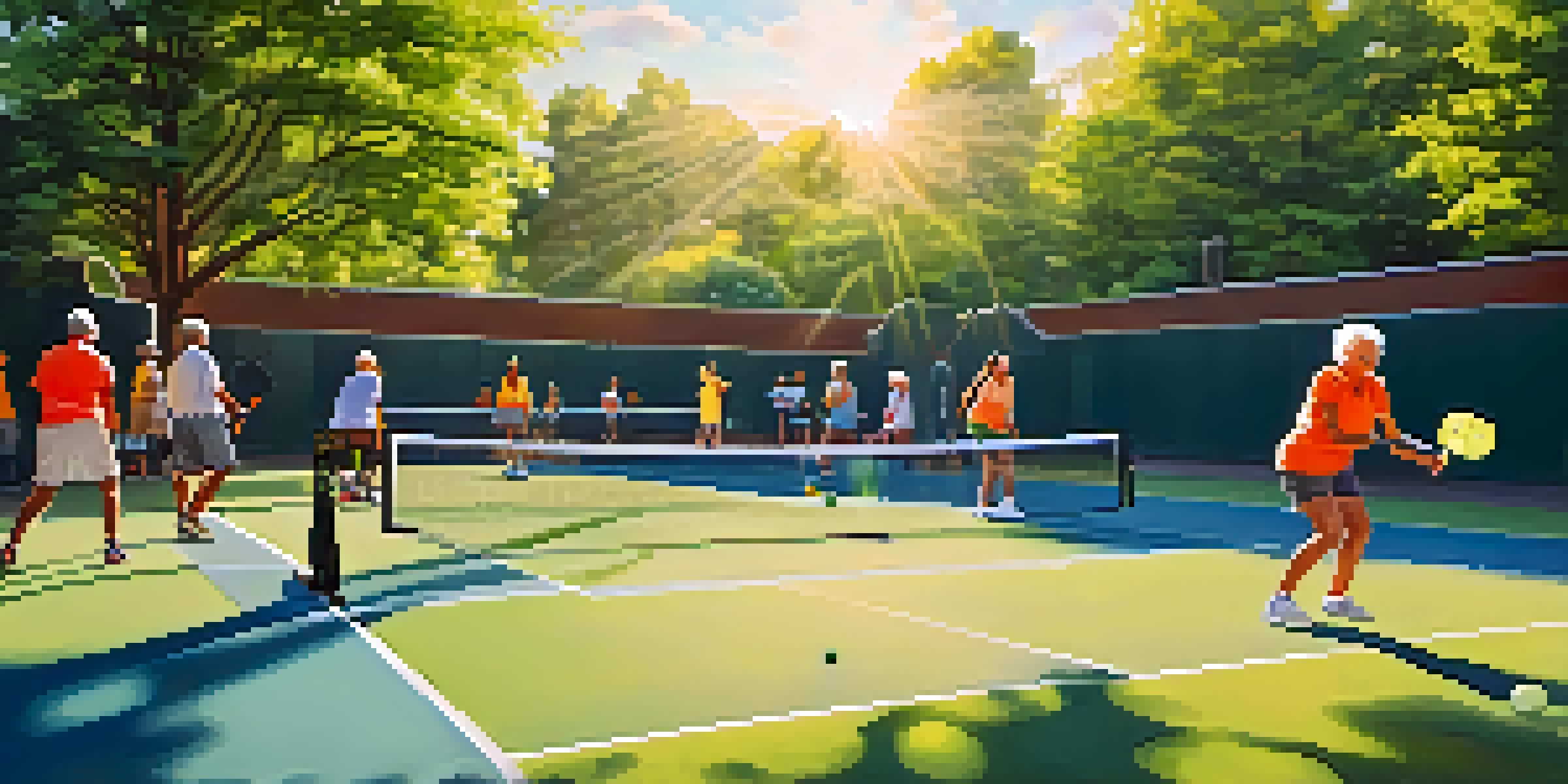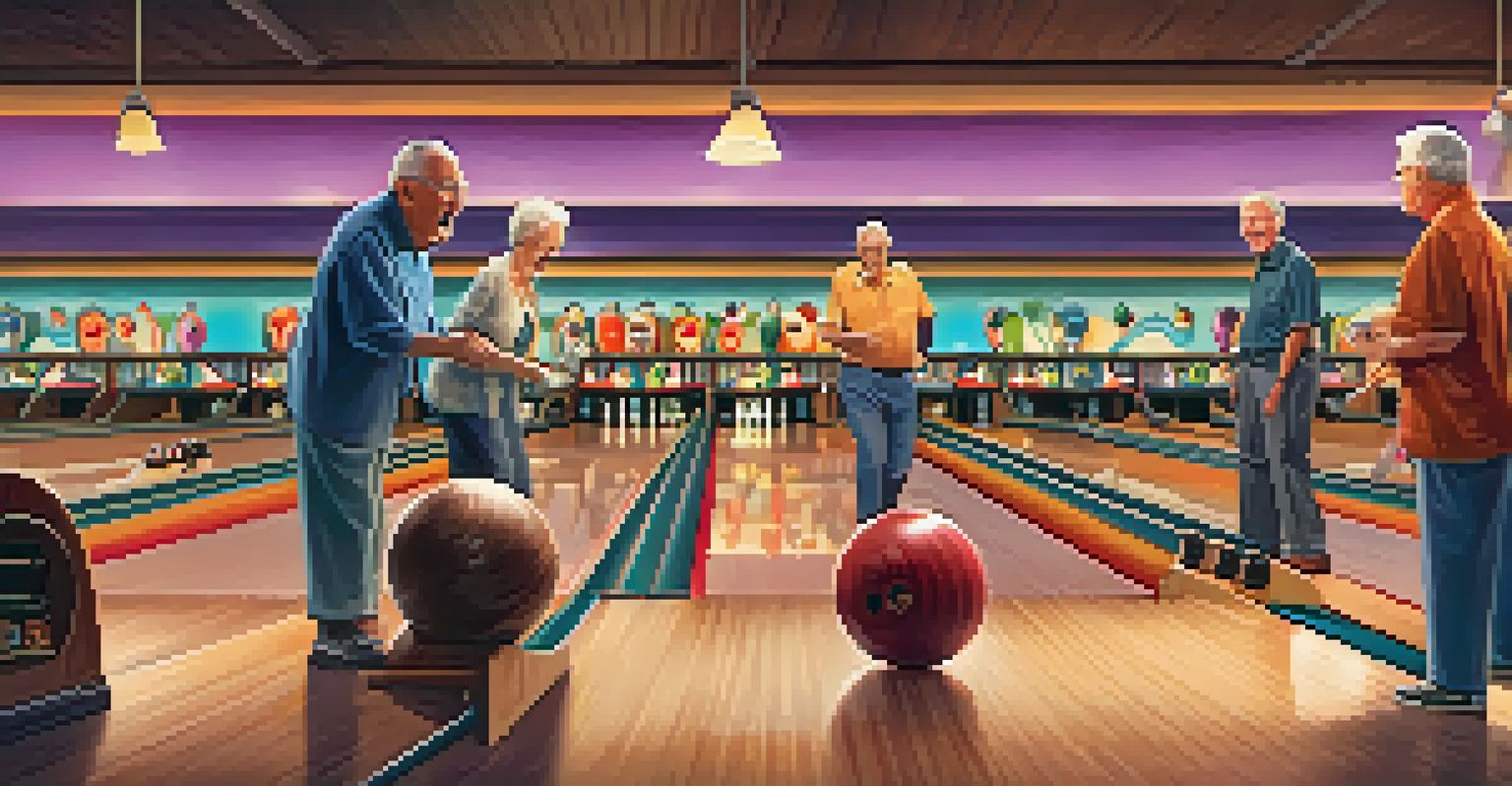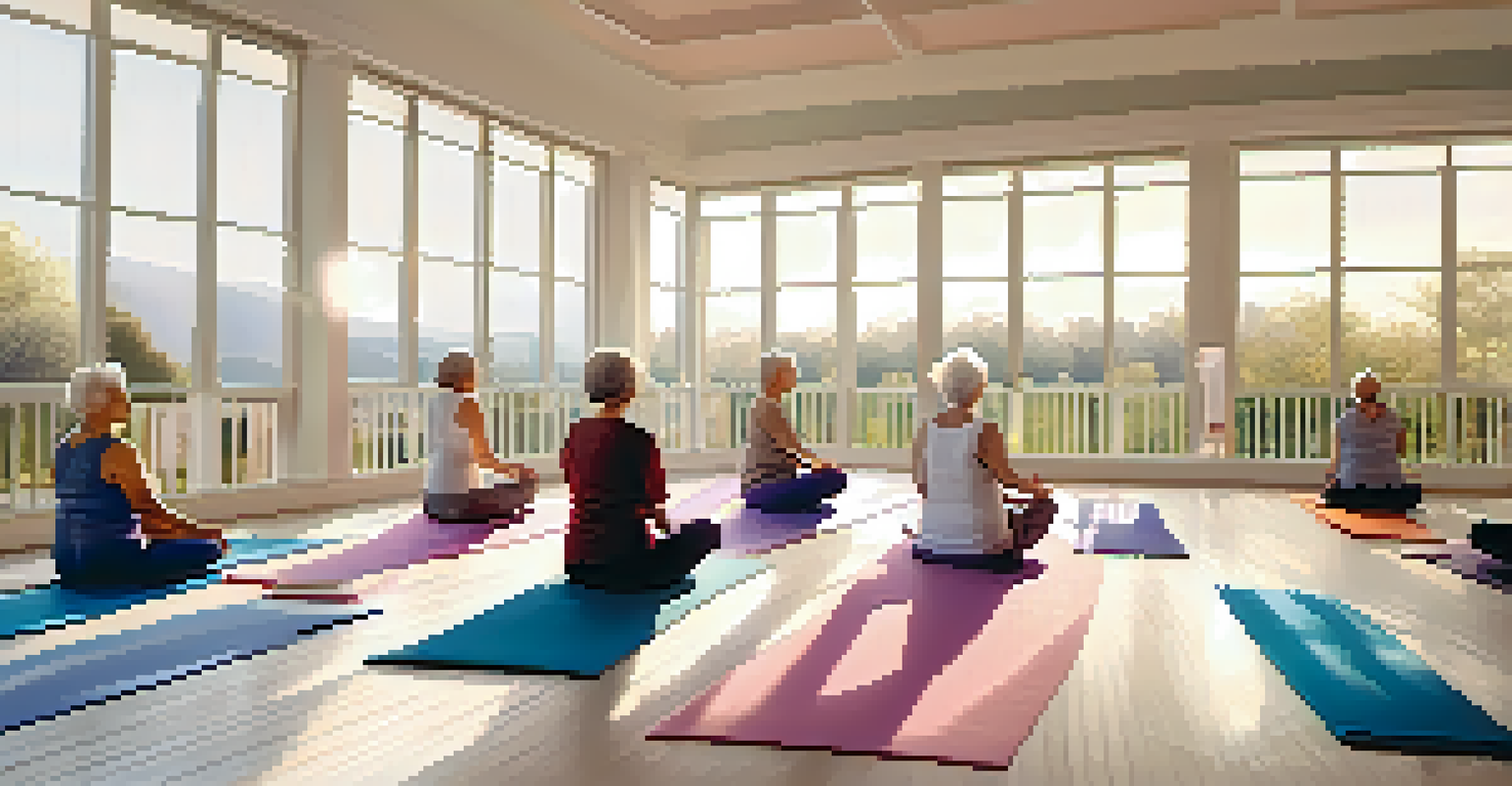Understanding the Role of Sports in Senior Fitness Programs

Introduction to Senior Fitness and Sports
As we age, staying active becomes increasingly important for maintaining overall health. Senior fitness programs often include various activities, and sports play a crucial role in this. Engaging in sports not only helps improve physical capabilities but also enhances social connections among seniors.
Age is an issue of mind over matter. If you don't mind, it doesn't matter.
Many seniors might think of fitness as a chore, but incorporating sports can make exercise feel more enjoyable. Whether it's joining a local bowling league or participating in community tennis matches, sports provide a fun way to stay active. This shift in perspective is vital for older adults looking to embrace a healthier lifestyle.
Moreover, sports can be tailored to fit the abilities and interests of seniors, ensuring that everyone can participate. From low-impact options like walking soccer to more traditional games, there's something for everyone. Understanding this variety can help seniors find the best fit for their fitness journey.
Physical Benefits of Sports for Seniors
Participating in sports offers numerous physical benefits for seniors, starting with improved cardiovascular health. Engaging in regular activity can lower blood pressure and enhance circulation, which is essential for overall heart health. This is particularly vital as the risk of heart-related issues increases with age.

Strengthening muscles and improving flexibility are additional advantages of sports. Activities like swimming or gentle cycling can build strength without putting too much strain on the joints. This is especially important for seniors, as maintaining muscle mass and flexibility aids in preventing falls and injuries.
Sports Enhance Seniors' Health
Engaging in sports significantly improves both physical and mental health for seniors.
Lastly, sports can boost endurance and balance, key components for maintaining independence. Activities that require quick movements or changes in direction can help sharpen reflexes and coordination. This can empower seniors to feel more confident in their daily activities, from walking to navigating stairs.
Mental Health and the Role of Sports
Beyond physical well-being, sports significantly impact mental health among seniors. Engaging in team sports or group activities fosters a sense of belonging and community. This social interaction can combat feelings of loneliness and isolation, which are common among the elderly.
The more that you read, the more things you will know. The more that you learn, the more places you'll go.
Additionally, participating in sports can lead to improved mood and reduced symptoms of anxiety and depression. Physical activity releases endorphins, the body's natural mood lifters, helping seniors feel happier and more energetic. Finding joy in sports can be a powerful antidote to the challenges of aging.
Moreover, sports can enhance cognitive function. Engaging in activities that require strategy, like golf or pickleball, stimulates the brain. Regular participation can help keep the mind sharp, making sports an excellent tool for boosting both mental agility and overall cognitive health.
Social Connections Through Sports
One of the most rewarding aspects of sports for seniors is the social connections they foster. Joining a sports team or participating in group classes creates opportunities to meet new people. These relationships can lead to lasting friendships, enriching the lives of seniors.
Community events centered around sports, like charity runs or local tournaments, further enhance social engagement. These events not only provide a platform for physical activity but also create a sense of purpose. Seniors can feel motivated to participate and contribute, which boosts their confidence and self-esteem.
Social Connections Boost Well-Being
Participating in sports fosters friendships and combats feelings of loneliness among seniors.
Moreover, the camaraderie built through sports can lead to a supportive network. Having friends who share similar interests can encourage seniors to stay active and committed to their fitness goals. This supportive environment can be a game-changer for many looking to maintain an active lifestyle.
Types of Sports Suitable for Seniors
When it comes to sports for seniors, there are plenty of options that cater to different interests and fitness levels. Low-impact sports like swimming, cycling, and walking are great for those with joint issues or limited mobility. These activities provide an excellent way to stay active while minimizing the risk of injury.
For those looking for a bit more excitement, consider sports like tennis or pickleball. These games are adaptable and can be played at various intensities, making them suitable for seniors. They also encourage social interaction, as they often involve playing with partners or in small groups.
Lastly, don’t overlook recreational team sports like softball or bowling. These activities are not only fun but also foster teamwork and community spirit. Participating in these sports can invigorate seniors, providing a sense of accomplishment and joy.
Overcoming Barriers to Participation
Despite the many benefits of sports, some seniors may face barriers to participation. Common challenges include physical limitations, lack of confidence, or fear of injury. It's essential to address these concerns to encourage more seniors to engage in sports.
One effective approach is to offer modified sports programs that cater to different abilities. Providing options like chair volleyball or gentle yoga can help seniors feel more comfortable participating. Tailoring activities to individual needs fosters inclusivity and promotes a positive experience.
Inclusive Sports Adapt to Abilities
There are various sports options tailored for different interests and fitness levels, making them accessible for all seniors.
Additionally, creating a supportive environment is crucial. Encouraging family members and friends to join in can alleviate fears and make sports more enjoyable. A little encouragement can go a long way in helping seniors embrace an active lifestyle.
Conclusion: Embracing Sports for a Healthier Future
In conclusion, the role of sports in senior fitness programs is invaluable. From physical health benefits to enhanced mental well-being, engaging in sports can significantly improve the quality of life for seniors. It’s about finding activities that resonate and inspire.
Moreover, the social connections formed through sports can combat loneliness and foster a sense of community. As we recognize the importance of these interactions, it becomes clear that sports offer a holistic approach to senior fitness.

Ultimately, embracing sports as part of a senior fitness program encourages a healthier, happier lifestyle. It’s never too late to get active and enjoy the many joys that sports can bring, empowering seniors to live their best lives.